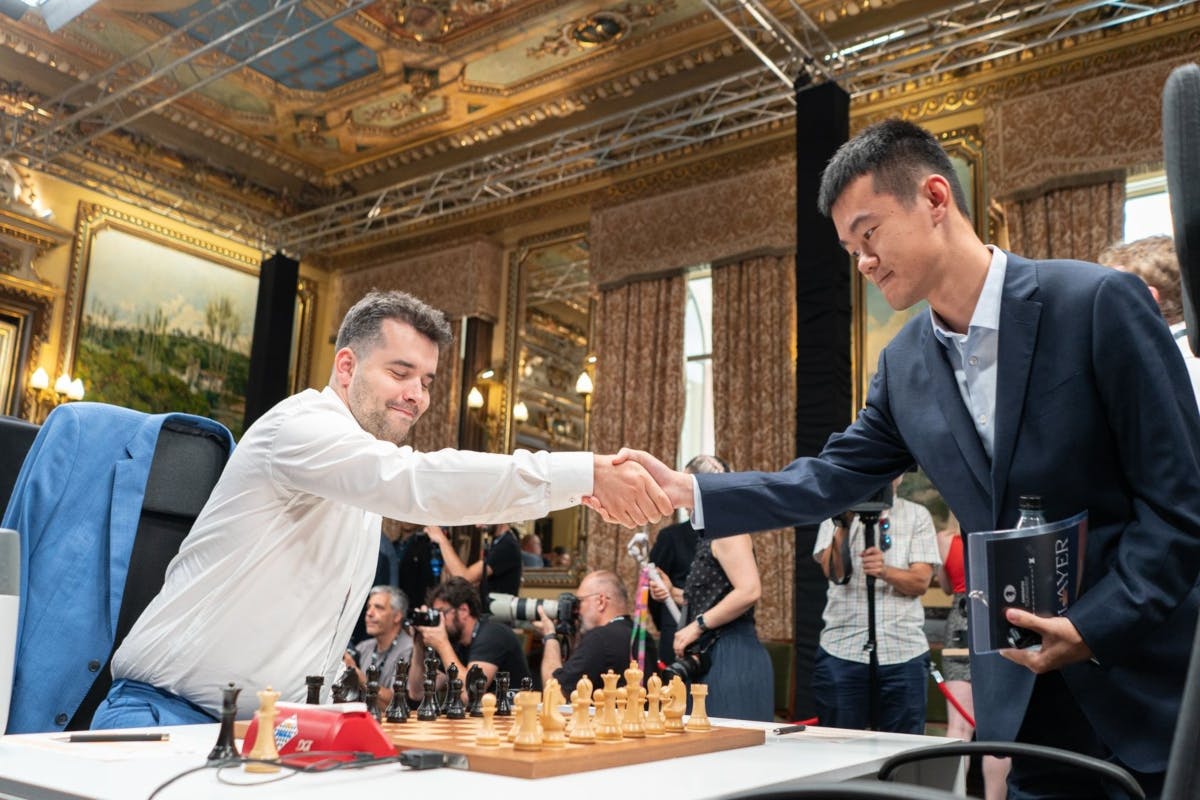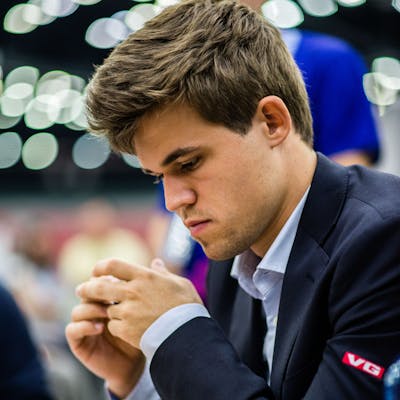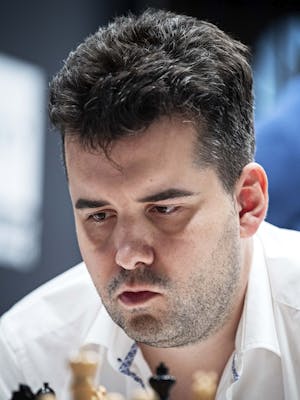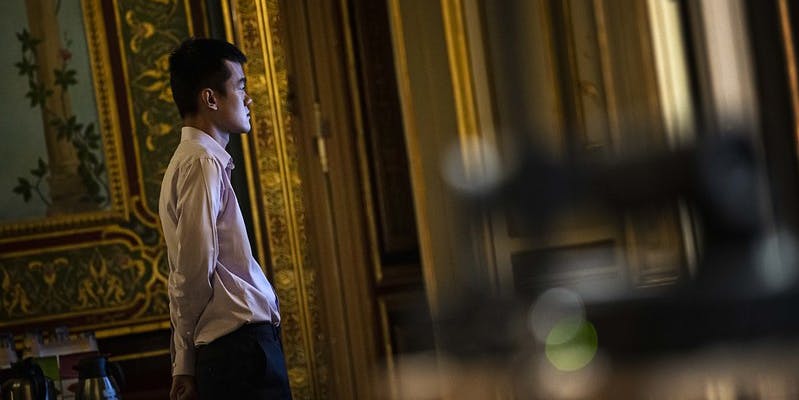Preview: FIDE World Chess Championship 2023
Ahead of the 14 game match between Ding Liren and Ian Nepomniachtchi, Lichess previews what may be in store

Officially since 1886 and unofficially since at least the 1830s, World Chess Championships have been played to determine the World Champion in chess. The title-holder since 2013, Magnus Carlsen, has abdicated his throne without being defeated. This means that Ian Nepomniachtchi (ranked #2 in the world, with a current rating of 2795) will play Ding Liren (ranked #3, with a 2788 rating) for the title in a 14-game match in Astana, Kazakhstan, with the first game scheduled for Sunday 9 April.

("Uneasy lies the head that wears a crown" Henry IV Part Two, William Shakespeare (photo credit: Andrea Kontokanis, 2016 Chess Olympiad)
Carlsen is not the first World Champion to refuse to defend the title, but it is rare. Memorably and most famously, Bobby Fischer refused to defend the title against Karpov in 1975. Fischer found the proposed match format unfair, arguing that it could easily be exploited by a player. Prior to this, the undisputed World Champion in 1948 failed to defend his title, but Alexander Alekhine had a rather convincing reason, having died two years earlier.
Some will undoubtedly question the true credentials of the World Champion after this match, as the top-ranked player in the world and (in the author’s opinion) the best player in history hasn’t been clearly defeated in a match format. Moreover, much like in boxing, the power of the title has historically come from a new champion defeating the old champion. The former World Champion and chess legend, Garry Kasparov, recently gave his thoughts, indicating “it’s an odd situation” and that Fischer’s precedent may not be entirely applicable: “Fischer stopped playing chess, Magnus has not”. Kasparov highlighted it is even likely that Carlsen will be playing both Nepomniachtchi and Ding shortly in the Grand Chess Tour, just weeks after the match.
However, with or without Magnus it promises to be an excellent match between two intriguing competitors. The players’ eligibility is certain – by virtue of having finished first and second in the 2022 Candidates Tournament.
Nepomniachtchi’s focus and passion for chess have justifiably been questioned at some points in his career. Nepomniachtchi has publicly discussed how at one point he was considering focusing on esports full-time – especially Dota 2, a game he once played semi-professionally.
Despite these different interests, from a young age Nepomniachtchi has been one of the most promising, creative, and aggressive chess players of his generation. Never afraid to take a risk or make a position double-edged, when in form he can exert an unmatched dominance over his rivals. For example, most recently in the 2022 Candidates tournament in Madrid, he finished 1.5 points ahead of second place, becoming only the second player ever to win two consecutive Candidates tournaments (the first being Smyslov in 1953 and then 1956). However, as much as his intuition can be his greatest strength, this can lend itself to not always playing as carefully or as methodically as other elite chess players.

(Photo: Stev Bonhage/FIDE - Nepomniachtchi at the Madrid Candidates)
For example, in Game 6 of the 2021 World Championship Match in Dubai, Carlsen seemingly frustrated him by forcing him to play what seemed to be a drawn (albeit complex) endgame late into the night. Nepomniachtchi allowed himself to momentarily lose focus, replying instantly despite having plenty of time left on the clock – until he made a terminal error, thus losing the first decisive game of the match after playing the longest game in World Championship history.
https://lichess.org/study/embed/RoBvWqfx/0IsLRqJa#260
Likewise, in Game 9 Nepomniachtchi played 27. c5 very fast, missing a three-move tactic for his opponent to win a full piece which he would definitely have identified if he had spent more time assessing the position.
Ding Liren meanwhile has historically been an incredibly solid player, at one point holding the record for the longest undefeated streak in classical chess, breaking Mikhail Tal’s record (Ding’s record was eventually surpassed by Carlsen). A testament to that stability is his FIDE ranking and rating – since May 2018, Ding has been in the top five players in the world or higher, with a rating average from then until the present day of 2802. Ding generally seems to prefer positional play, and is one of the best players alive at raw calculation, with particular strengths within the endgame. However, cracks have been appearing in Ding’s play, seemingly starting around the same time as the global Covid pandemic.
Ding had a disappointing performance in the 2020 Yekaterinburg Candidates, both in the first half and then the second half once Russia’s borders had reopened in 2021. Likewise, Ding struggled in the recent Tata Steel Masters 2023, with losses against Praggnanandhaa, Giri, and Rapport, finishing 11th out of 14 players with 5.5/13. His loss of 23 rating points from the tournament gave him his lowest rating since April 2018 and caused him to drop a place in the world rankings (from second to third). It’s certainly possible that he could have been hiding his match preparation, keeping his eye on the bigger goal – but even if so, such a disappointing result could be difficult to bounce back from psychologically.

(Photo: Stev Bonhage/FIDE - Ding Liren at the Madrid Candidates)
The 2023 World Championship promises to be exciting for all fans of chess. It should be closely fought, as for the first time in nearly a decade it’s essentially a coin toss to determine the winner. Assuming we get the confident, creative, and aggressive Nepomniachtchi, against the historically rock-solid Ding – it could be an absolute cracker of a match, where the author would give the edge to Ding. But, if both players continue to show the form they have done recently – then the author believes Nepomniachtchi will win overall.
The Public’s View
Lichess polled its different social media channels to see who the public thought would win.
Every social media channel believed Nepomniatchi would be most likely to win. This was most obvious in our Instagram community, which gave a 65-35 prediction in favour of Nepomniachtchi. Similar figures came from Telegram (63-37) and Twitter (63-37).
Our Mastodon community (a free/libre open source software alternative to Twitter which has recently exploded in popularity) was more moderate in its prediction, with a 55-45 split in favour of Nepomniachtchi.
The Mastodon results were closest to what the bookies say, as the latest odds slightly favour a Nepomniachtchi win (for which a $1 stake would return $1.60-$1.80 compared to $2-$2.25 for a Ding win).
Controversies
As is recent tradition – what’s a good chess tournament without a few major controversies?
Against the backdrop of the Russian invasion of Ukraine, now in its second year, questions have been asked about the sport’s governing body, FIDE, continuing to maintain commercial ties with Russian organisations and figures supportive of the Putin regime.
FIDE has come under fire for seemingly selling broadcast rights to Match TV per the Russian Chess Federation. Match TV is a Russian TV channel owned by Gazprom-Media, which is under sanctions including in the US and Canada. While it is not clear whether Match TV will receive the live video feed, FIDE has not distanced itself or released any public statement regarding what the Russian Chess Federation has announced. Consequently, FIDE appears to be doing business with entities sanctioned in the West, while other international sports organisations such as the English Premier League, Formula 1, and WWE have terminated their deals with Match TV.
Western media – namely Norwegian national TV channel, NRK – will not be broadcasting this World Championship for the first time in a decade, despite having paid for the broadcast rights. While their motivation is due to Carlsen dropping out, those using the video feed in the West will need to be wary to ensure laws on not indirectly or inadvertently advertising sanctioned companies are followed – such as logos on players’ clothing. Nepomniachtchi has historically been sponsored by Russian companies close to the Russian state, several of which are now sanctioned.
FIDE’s president, Arkady Dvorkovich, who was formerly a deputy prime minister of Russia (2012–2018), has continued to maintain strong links with the Russian government, by continuing to serve on the Board of Trustees of the Russian Chess Federation. Dvorkovich sits alongside two senior and central figures of the Russian government – Defence Minister Sergei Shoigu, and Putin’s spokesperson Dmitry Peskov (who has both made and defended threats of apocalyptic nuclear war if Russia loses the war in Ukraine) – as well as other individuals and representatives of businesses, sanctioned by dozens of countries. In total, 13 of the 17 members of the Board of Trustees are sanctioned.
Earlier this month, a Russian Chess Federation senior official shared with Russian state media that Dvorkovich’s control of FIDE was probably the main reason why chess has not followed the example of sports such as gymnastics in a total ban of Russian and Belarusian players from playing in events under any flag. Other sports such as athletics, swimming, cycling, skiing and ice-skating have taken similar approaches to gymnastics. FIDE’s CEO, Emil Sutovsky, recently highlighted that their position since the invasion has been similar to that adopted by tennis authorities, where Russian and Belarusian teams are banned from competition but individual athletes can still play under a neutral flag. Even so, tennis does not show the Russian or Belarusian flags on their online rating lists, but FIDE does - see Nepomniachtchi’s FIDE profile or the FIDE rating list, for example. Essentially FIDE’s policy enables Russian and Belarusian players to continue competing internationally with practically no changes from before.
Given the long history of state support for chess in Russia, few doubt that the Kremlin would welcome a Nepomniachtchi victory, and may even seek to use it for propaganda purposes. FIDE has not given any public statement regarding measures they have made to limit this, or on how to handle a player potentially receiving funding from internationally sanctioned entities. That said, it is worth highlighting that Nepomniachtchi's personal views are vastly different to those of the Russian state, as he was one of the 44 Russian chess players who signed an open letter to Vladimir Putin in March 2022 expressing firm opposition to the war and solidarity with the Ukrainian people. These same propagandistic concerns can of course also be said for how the PRC may view a victory for Ding, should he prevail. From this perspective, neither options are good for the marketability and health of chess, as it approaches a zenith of popularity in the West, with both having political implications.
FIDE was approached for comment, but after several hours, has not given any.
Some will say that such political considerations have no place within sport. But how can that be true for chess when the sport has regularly been co-opted for political ends, from Fischer versus Spassky right through to Russia's official diplomatic efforts in 2018’s FIDE presidential elections?
But the politics is not the players' fault; and controversies aside, a new World Champion in classical chess is a major event. Both Ding Liren and Ian Nepomniachtchi richly deserve their chance at glory; and we look forward along with all chess lovers to what the next few weeks has in store for us.
(Title image: Stev Bonhage/FIDE - Ding and Nepomniachtchi at the Madrid Candidates 2022)